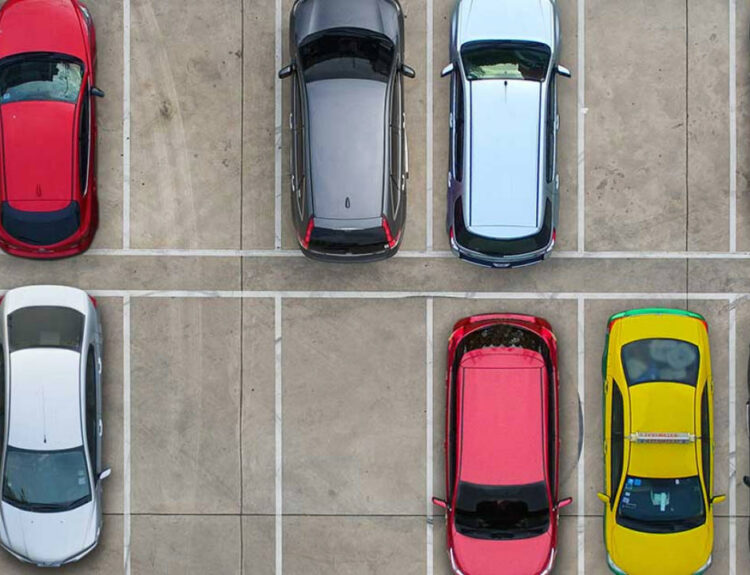A Comprehensive Guide to Selling Your Car in Dubai: Navigating the Process with Ease
Selling a car in Dubai is neither daunting nor complicated, provided you understand the regulatory landscape. Whether you’re opting for a private sale or going through a dealership, being aware of the relevant rules and requirements guarantees a seamless transaction.
Key Regulations for Selling a Car in Dubai
Essential Considerations Before Listing Your Vehicle
When preparing to sell your car, keep the following crucial points in mind:
-
Advertising Limitations: Displaying a “For Sale” sign on your vehicle is prohibited and can lead to your car being impounded. To comply with local laws, utilize online platforms such as DubiCars for your listing.
-
Car Wash Regulations: Public washing of vehicles is illegal and subject to a fine of AED 100. Ensure your car is cleaned at a licensed car wash.
- Loan Obligations: If your vehicle is financed through a bank loan, you must settle the outstanding balance prior to selling. While it’s feasible to sell a car with a loan, potential buyers often prefer vehicles without financial encumbrances due to the complications involved.
By adhering to these regulations, you can avoid fines and facilitate a smoother sales process.
Pre-Sale Checklist
Before finalizing the sale of your car, ensure you complete the following steps:
-
Settle Any Outstanding Loans: If your car is financed, pay off any remaining balance. The bank will notify the Roads and Transport Authority (RTA) to update their system accordingly.
-
Obtain a Vehicle Inspection: A successful RTA inspection is mandatory for all vehicles being sold. The inspection fee is AED 170, and the certification is valid for 30 days. Should the vehicle fail, necessary repairs are required before a retest can be conducted.
- Resolve Any Traffic Fines: Clear any outstanding traffic violations or impoundment notices prior to the sale. You can easily check for fines using the RTA app or website.
Required Documentation for Buyers
When purchasing a vehicle, buyers should be prepared with the following documents:
- A valid insurance policy for the vehicle.
- Emirates ID.
- UAE driving license (the issuing emirate does not affect validity).
- Passport with a residence visa (required for first-time registrations only).
All documentation must be original, although copies may be requested at various stages. If a buyer is a resident of a different emirate, they must register the vehicle in their home emirate, a stipulation that does not apply to UAE nationals.
Who Has the Authority to Sell a Vehicle?
Private Sale: The registered owner of the vehicle has the right to sell it, provided there are no outstanding financial obligations or legal issues.
Authorized Representative: If you are unable to be present for the sale, you can authorize someone through power of attorney to handle the sale on your behalf, a process that requires legal formalization through UAE courts.
Showroom Sales: Selling through a licensed car showroom is an option. Many showrooms take on consignment vehicles and charge a commission fee.
Regardless of your selling method, it’s imperative that the vehicle’s registered owner is present during the ownership transfer at the RTA.
Insurance Transfer Protocol
If the vehicle’s insurance is valid for seven months or more, it may be transferable to the new owner. Verify with your insurance provider if this service is available. Alternatively, you can cancel your existing policy and request a refund for the remaining period, provided at least seven months remain.
Navigating the Sale with an Outstanding Loan
Selling a car still under finance can be complex and is generally discouraged. The process includes:
- Both parties visiting the bank together.
- The buyer paying off the outstanding loan.
- Signing a sales agreement letter.
- The bank notifying the RTA of the loan clearance (which can take up to 48 hours).
- An SMS will be sent to confirm the loan’s status.
- Both parties then proceeding to the RTA for the ownership transfer.
Selling While Leaving the UAE
Expatriates departing the UAE permanently must sell or export their vehicle before canceling their visa. Failing to do so could result in fines or impoundment. If exporting, an Export Certificate must be obtained from the RTA.
Utilizing RTA Smart Services
The RTA provides online services to facilitate vehicle transfers, allowing buyers and sellers to handle much of the transaction digitally before confirming details in person.
Dealing with Car Dealers
For those seeking a quick sale, licensed dealerships that purchase used cars offer a hassle-free solution. Note that the sale price may be lower than the market rate, so it’s crucial to obtain a signed agreement and confirmation of ownership transfer.
Understanding Vehicle Valuation
Before selling, assessing a fair market price for your car is advisable. Various valuation methods, including RTA-approved centers and online valuation tools, can assist you. Consider using DubiCars’ free online valuation tool for transparent pricing.
Exporting a Vehicle from Dubai
If your buyer intends to take the vehicle outside the UAE, an Export Certificate from the RTA is required. Furthermore, the vehicle must pass an Export Test, and the seller is responsible for removing UAE license plates. Cancelation of insurance and registration will occur once the export procedure is completed.
Common Scams and Precautions
Beware of potential scams, including fake buyers presenting fraudulent cheques or promises of partial payments. Always conduct transactions in person at an RTA-approved service center or through a secure platform, and avoid sharing vehicle information until the buyer’s identity is verified.
Fees for Ownership Transfer
The RTA charges a vehicle transfer fee, generally starting at AED 350 for light vehicles. Additional fees may apply for special or personalized number plates.
Selling your vehicle in Dubai can be a seamless experience when following the necessary protocols. Whether choosing to sell privately or through a reputable showroom, ensuring all documentation is accurate and all financial obligations are settled will pave the way for an efficient transaction.
For a simplified selling process, consider listing your car on DubiCars, the premier online marketplace for buying and selling vehicles in the UAE.
Frequently Asked Questions
What documents do I need to sell my car in Dubai? Original Emirates ID, vehicle registration card (Mulkiya), valid vehicle inspection certificate, and a loan clearance letter (if financed) are required.
Can I sell my car while it’s still under finance? Yes, but you must settle the outstanding loan or coordinate with the buyer and bank for loan clearance during the sale.
Who is responsible for paying the ownership transfer fees? Usually, the buyer covers the transfer fee, which is approximately AED 350.
Is a vehicle inspection report needed? Yes, a passing inspection certificate is required for cars over three years old.
Can I transfer my existing insurance to the new owner? If the policy has seven months or more remaining, it may be transferable, subject to the insurer’s conditions.
How can I assess my car’s value before selling? Use reputable online valuation tools by entering your car’s make, model, year, mileage, and condition.
What if there are outstanding fines on my car? All fines must be settled before the transfer of ownership can proceed.
Is it legal to put a ‘For Sale’ sign on my car? No, this practice is prohibited in Dubai and may lead to your vehicle being impounded.
Can someone else sell my car for me? Yes, you can legally designate a trusted person through power of attorney to manage the sale, formally arranged through UAE courts.
What should I do after selling my car? Cancel your insurance policy to avoid ongoing liabilities and deactivate any toll tags related to the vehicle.
Stay updated with Dubai’s most trusted automotive resource for the latest information on market trends and regulations in the Emirates.
Source:www.dubicars.com




